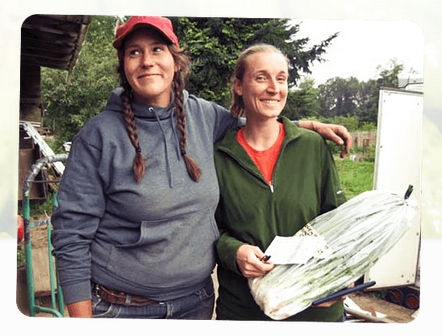
Wireless routers. Influenza diagnostic tools. And even a new recipe for healthy sauerkraut.
Those are among the 16 finalists who advanced Tuesday in the University of Washington’s annual business plan competition, as more than 300 judges from the Seattle community (including GeekWire’s Daniel Rossi) reduced the field of 36 student-led teams. The $25,000 grand prize winner will be chosen May 22 at an awards reception, keynoted by Gravity Payments founder Dan Price.
Over the past 14 years, $1.4 million has been awarded to 112 student teams.
Here are descriptions of the 16 finalists provided via the UW. Which one do you think has the best chance?
Aurora Plasmonics (University of Washington)
Aurora Plasmonics has developed a new, non-invasive theranostic agent that allows for a new blood declotting procedure with simultaneous imaging capabilities.
ChooseVets.com (University of Washington – Tacoma)
Outsource your life and empower a veteran. ChooseVets is a web based, peer-to-peer market through which customers can hire local military veterans to complete common or specialized tasks, jobs or errands. ChooseVets will charge a brokerage fee for connecting its customers with its military veteran independent contractors. ChooseVets’ contractors can perform a diverse range of personal services and labor, ranging from landscaping to remodeling houses. Through ChooseVets, businesses and individuals can not only find reliable, skilled people to get needed tasks accomplished, they can show their support for America’s veterans and help them reintegrate back into their local communities.
FastBar (University of Washington – Bothell)
FastBar increases bar revenue and improves the attendee experience with a cashless RFID payment system designed for pop-up events.
FDCARES (University of Washington)
FDCARES, LLC is an evidence-based training, safety and quality assurance company dedicated to transforming and improving fire department services for non-emergency patient care. FDCARES supplies fire departments with products and services that optimize their medical response system for non-emergency 911 callers andhigh-volume users of Emergency Medical Services and Emergency Department care. The results are better care, fewer costs, and safer communities.
 Flu Finder (University of Washington)
Flu Finder (University of Washington)
Current flu diagnostic tests are unable to achieve effective early diagnosis for most flu-infected individuals. Flu Finder has created a flu test that is accurate, inexpensive, and can be administered by anyone, anywhere, with results in less than 20 minutes.
Innovii (University of Washington)
The Innovii Challenge is a competition where teams of 3 to 5 high school students are given a twenty dollar bill and ten days to create, develop, and execute a profitable micro-venture.
IonoMetal Technologies (University of Washington)
With its revolutionary patented technology and demonstrated tool, Ionometals will not only make the earth a better place to live by reducing landfill of semiconductor waste, but also help save approximately $0.5MM for every semiconductor testing company.
Korvata (University of Washington)
Korvata Inc. creates cutting edge alternative chemistry products that enable companies to mitigate their environmental impact. Korvata, a Delaware Corporation, received the top award at the 2014 UW Environmental Innovation Challenge (EIC). Its patent-pending technology enables customers in the food & beverage and CPG industries to significantly reduce their carbon footprints.
Loopool (Bainbridge Graduate Institute)
Loopool is both a technology and a philosophy for the management of a sustainable textile and apparel supply chain ecosystem. It is a process used to reclaim textile and apparel waste and convert it into high quality bio-based fiber for the creation of new textiles and apparel. Loopool is a holistic closed-loop garment recycling system and a business model representative of the new era circular economy.
Mobile Foam (Washington State University)
Mobile Foam provides companies with the necessary chemicals and portable molds to manufacture polyurethane blocks, allowing for organizations to bypass shipping costs of individual blocks by manufacturing their own building materials on the site of construction. This method will allow organizations to construct houses in a faster, more cost effective manner, allowing for increased housing production rates while creating long lasting quality homes.
NOVA Technologies (Western Washington University)
As the thirst for energy increases, the world’s superpowers are becoming dangerously covetous. In desperation to stave the inevitable, the most pristine natural wonders are sacrificed in the name of progress. Pipelines, mines, fracking sites, nuclear deposits, and coal dust risk the stability of a delicate environment; yet we continue. Imagine if the entire surface area of a skyscraper could function as a solar system. Thousands of square feet of solar windows, entire buildings, entire cities generating localized power. NOVA Technologies is proud to present the very first fully transparent photovoltaic solar window: the NOVA Solar Window.

OlyKraut (Bainbridge Graduate Institute)
OlyKraut combines local produce, the magic of fermentation, and delicious original recipes to create sauerkraut that’s more than a condiment–it’s a health tonic, a kick in the tastebuds, and an investment in the local food system.
OpsMagic (University of Washington)
OpsMagic combines off-the-shelf cameras and advanced computer vision to automate observational studies, empowering businesses to tune operations to consumer demand. By building software intelligence and analytics on top of everyday video infrastructure, we solve the pain of a person using a stopwatch and some paper to measure business processes. Instead, we enable businesses to quickly understand customer demand, rapidly iterate on continuous improvements, and immediately see cause and effect. OpsMagic solves a major hassle in business operations measurement by tapping into new source of big data in video.
Projected Talent (University of Washington)

Projected Talent is revolutionizing the way that businesses hire student interns. It’s online platform allows businesses to “audition” multiple candidates on short-term projects, avoiding the commitment of a long-term hire until they find the right fit. It also provides students with the opportunity to gain experience in a variety of fields by working on projects for a number of different companies.
Spectral DNA (University of Washington)
Spectral DNA’s goal is to deliver a conformable solar fabric that can be fully integrated into a multi-use model for ubiquitous power generation. We aim to micro-design these 3D conformable fabrics into clothing, and other needed uses and applications for ubiquitous power. This can be used as a mobile power generation house without connecting to wires.
Trestle (University of Washington)
Trestle is the answer to the question “what would it look like if Nest built a router?” – our passion is simplifying the complicated process of setting up a wireless router and increasing network speeds by up to 10x, and our goal is delighting our customers with the most user friendly technological experience they’ve ever had. Trestle is hassle-free software to set up, secure and optimize your wireless network so easy that even your grandma can do it.





